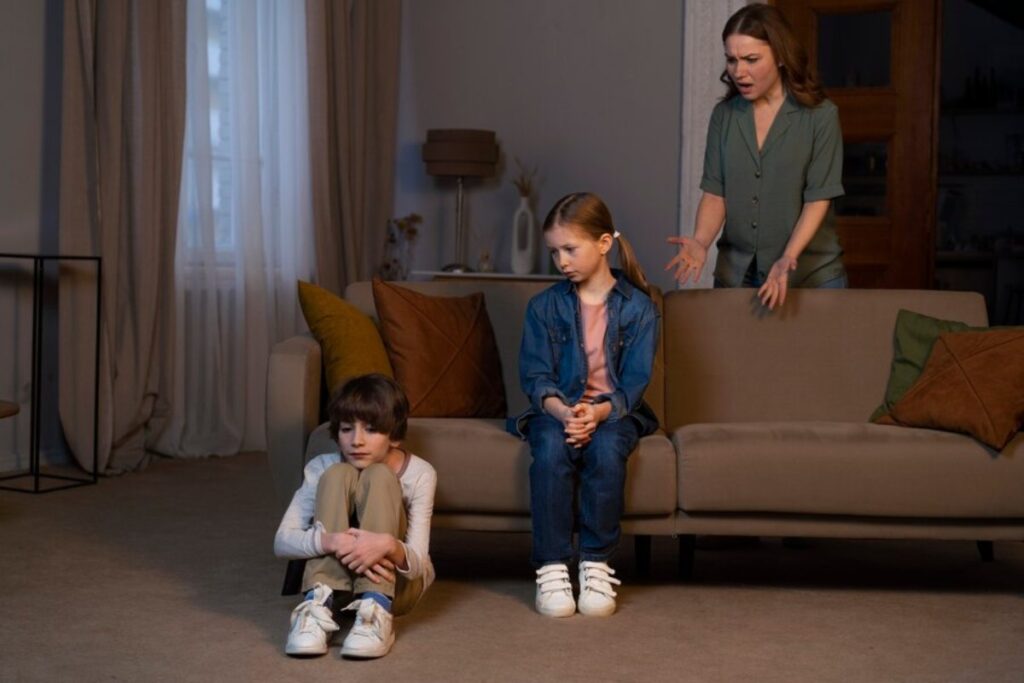It’s important to recognize the signs of depression in children to help them get the support they need. Children with depression often show changes in their mood and behaviour, such as persistent sadness, irritability, loss of interest in activities, constant fatigue, social withdrawal, a decline in school performance, and changes in eating and sleeping patterns. They may also express negative thoughts about themselves, complain of physical ailments like headaches and stomachaches, and, in severe cases, engage in self-harm or have suicidal thoughts. Foster children are particularly vulnerable due to past trauma and feelings of instability. If you notice these signs in your child for more than two weeks, seeking professional help is crucial.
Changes in Mood and Behaviour
Several changes in mood and behaviour could indicate your child is depressed. These include:
- Persistent sadness – Your child often seems sad, tearful, or unhappy. These feelings persist and are not just temporary “bad moods.”
- Irritability – Your once easygoing child seems frequently cranky, angry, or annoyed. Little things trigger major irritation.
- Loss of interest – Your child loses interest in activities and hobbies they used to enjoy. They may skip sports practices or drop out of clubs.
- Fatigue – Your child seems constantly tired and lacks energy. They may sleep more than usual.
- Withdrawing socially – Your child pulls away from friends and family. They avoid social interactions.
- Decline in school performance – Grades drop, and your child seems unmotivated about school. This persists over time.
- Changes in eating and sleeping – Sleep and appetite changes can indicate depression. Your child may sleep too much or too little. Eating more or less is also a possible sign.
If you notice several of these signs persisting for two weeks or longer, it may indicate depression. Keep monitoring your child and consider speaking to their GP. Ongoing changes in mood and behaviour warrant professional evaluation.
Negative Thoughts and Feelings
Children with depression often express negative thoughts about themselves, their lives, and the future. They may say things like:
- “Nothing will ever get better.”
- “I’m a loser”
- “It’s hopeless.”
Listen for negativity and comments that seem overly self-critical or pessimistic. Also, watch for signs that your child feels worthless, guilty, or full of self-loathing. These thought patterns can indicate depression.
Physical Complaints
Depression sometimes manifests physically in children. Be alert for frequent and unexplained:
- Headaches
- Stomachaches
- Fatigue
If your child continuously complains of not feeling well without a clear medical cause, depression could be the reason.
Self-harm and Suicidal Thinking
In more serious cases, children with untreated depression resort to self-harm behaviours or suicidal thinking. Warning signs include:
- Cutting or purposely injuring themselves
- Talking, writing, or posting suicidal thoughts
Seek immediate professional help if you observe any suicidal behaviour or warning signs.
Depression in Foster Children
Foster children are at high risk for developing depression. Experiences that lead to a child being removed from their homes and families can cause trauma. If you foster children with orangegrovefostercare.co.uk, you know that they may struggle with feelings of abandonment, instability, and low self-worth. They may act out or withdraw socially as a result. Caregivers should watch for signs of depression in foster children, like persistent sadness, irritability, and poor school performance. Getting foster children mental health support early is crucial. With compassion, therapy, and treatment, foster children can overcome depression and avoid long-term mental health issues.
Getting Help
If you spot multiple potential signs of depression in your child, especially if they persist for two or more weeks, seek professional help. Speak to your child’s GP for a mental health referral. With professional evaluation and treatment, childhood depression is highly treatable. Early intervention leads to the best results and can prevent depression from worsening.
References
Title: Screening for depression in children and adolescents: a protocol for a systematic review update
- Publisher: Systematic Reviews Journal
- Year: 2021
- DOI: 10.1186/s13643-021-01630-2
- Overview:
- Examines the benefits and harms of depression screening in children and adolescents.
- Highlights the importance of accurate diagnosis and effective treatment in primary care settings.
- Discusses the inadequacy of evidence supporting routine depression screening for children under 11 years old.
Title: Effect of exercise intervention on depression in children and adolescents: a systematic review and network meta-analysis
- Publisher: BMC Public Health
- Year: 2023
- DOI: 10.1186/s12889-023-15678-9
- Overview:
- Analyzes the impact of various exercise interventions on depressive symptoms in young people.
- Suggests that aerobic exercise and group training are effective in reducing depression.
- Provides evidence supporting the use of physical activity as part of treatment for childhood depression.
Title: Prevention of Depression in Children, Adolescents, and Young Adults: The Role of Teachers and Parents
- Publisher: Psychiatry International
- Year: 2021
- DOI: 10.3390/psychiatryint2030027
- Overview:
- Emphasizes the role of educators and parents in the early detection and prevention of depression.
- Recommends training for teachers to identify and address depressive symptoms.
- Highlights the importance of reducing stigma and providing timely psychological and pharmacological interventions.
Title: Diagnosis and management of depression in adolescents
- Publisher: Canadian Medical Association Journal (CMAJ)
- Year: 2020
- DOI: 10.1503/cmaj.190618
- Overview:
- Explores the diagnostic criteria and approaches for managing depression in adolescents.
- Highlights the utilization of validated screening tools such as the PHQ-9 and emphasizes the significance of thorough risk assessments.
- Highlights the need for confidentiality and collaboration with caregivers in treatment planning.
Title: Changes in Depression and Anxiety Among Children and Adolescents During the COVID-19 Pandemic: A Meta-Analysis
- Publisher: JAMA Network Open
- Year: 2021
- DOI: 10.1001/jamanetworkopen.2021.30108
Overview:
- Analyzes the increase in depression and anxiety symptoms among youth during the COVID-19 pandemic.
- Indicates that older children and adolescents experienced higher levels of depressive symptoms.
- Suggests the need for targeted mental health interventions during public health crises.

